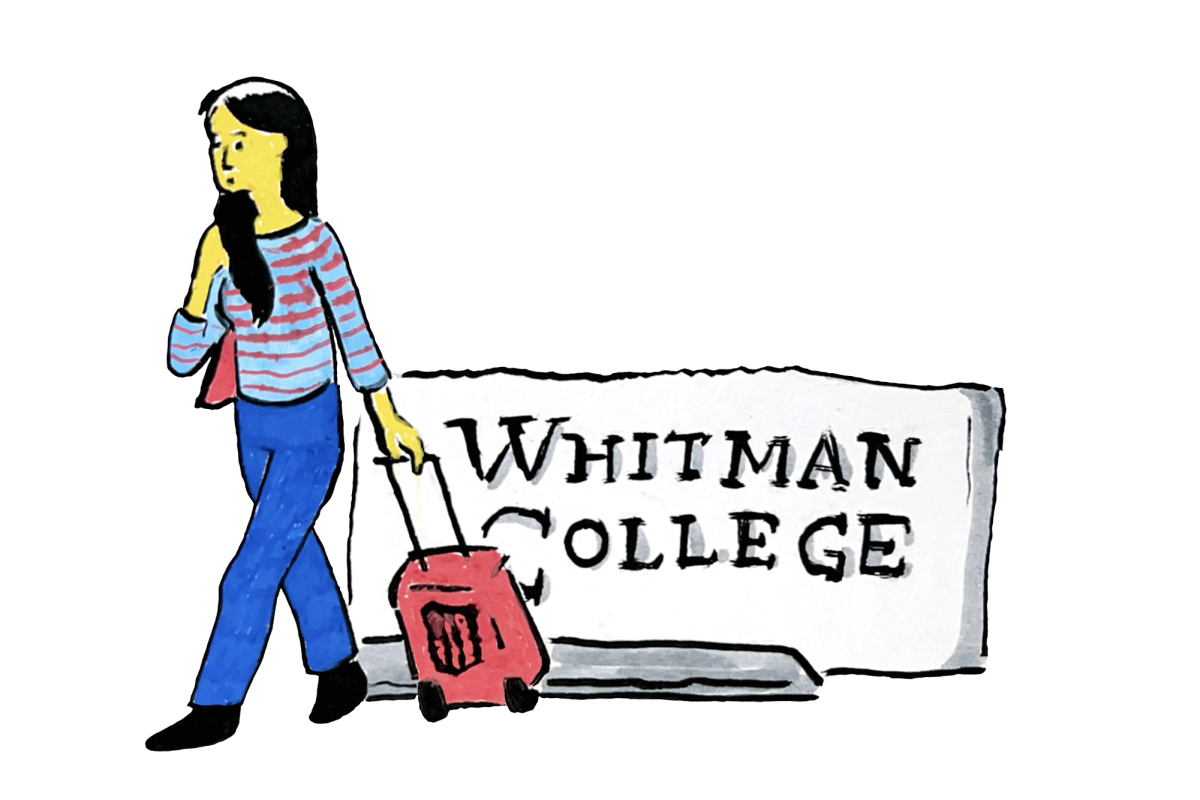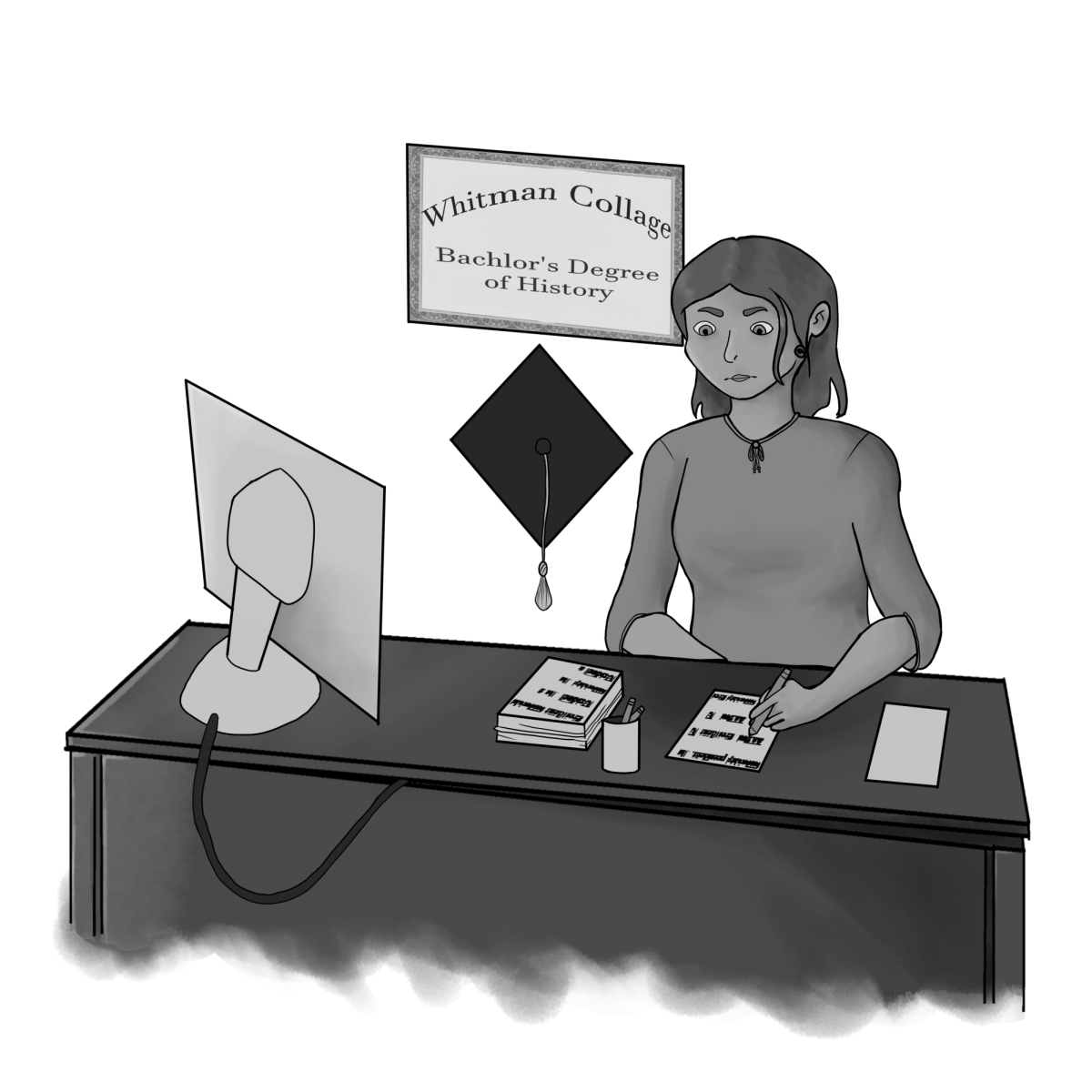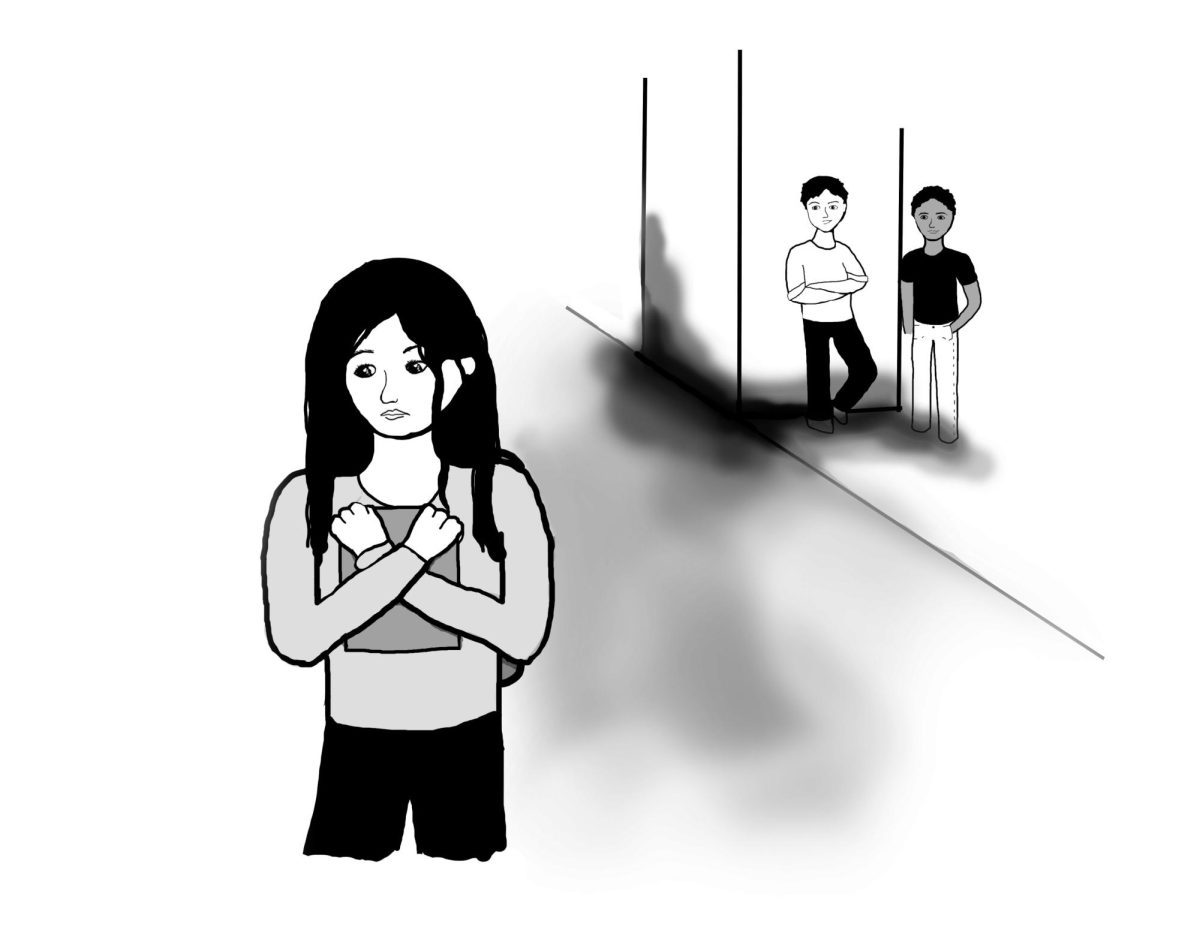On Whitman’s campus, file-sharing turns even the most highly-educated and well-groomed college student into a criminal.
Few would disagree that using the Internet to obtain music and movies without paying for them is a copyright violation; students are aware that when they do this they are breaking the law. This knowledge, however, deters few from illegal downloading.
Socially accepted
“Yes,” senior Ian Gill asserted when asked if students at Whitman illegally download music and movies, “I know this for a fact.”
According to junior Theo Pratt, to students who obtain media illegally, violating copyright doesn’t feel like a crime.
“Consciously, people know that they are stealing,” he said, adding that students, “wouldn’t consider it the same as walking into a store and stealing a CD or DVD off the rack.”
Gill echoed this sentiment.
“It is stealing, but it’s okay; there’s a disconnect,” said Gill, attributing students’ willingness to violate the law to the fact that “it’s not a physical item.”
The ability to gain access to movies, TV shows and music free of cost in the privacy of a personal living space is irresistible to many. It’s illegal, but it is viewed with an “everyone does it” mentality and shrugged off. And because this act is so commonplace, there is no fear of repercussions.
“Not really,” said Pratt when asked if students worry about the consequences of illegal media use.
“People who do it are a third party–if you’re going to enforce laws, you’ll go after the people who are redistributing it–the sites as opposed to the individuals.”
Whitman’s policy
Whitman addresses the issue in its Whitman Campus Network Acceptable Use Policy, which can be found on the WCTS website. Copyright violation is listed as unacceptable conduct.
This policy refers to the violation of the Digital Millennium Copyright Act (DMCA). Whitman receives complaints of copyright violations from the Motion Picture Association of America and the Recording Industry Association of America. This summer, new provisions of the Higher Education Opportunity Act (HEOA) went into effect, placing a greater obligation on institutions of higher education to have polices on copyright infringement and to notify students about these policies. Action against copyright violation at the college level increased after the HEOA went into effect, according to Whitman’s Chief Information Officer Keiko Pitter.
“Both recording and motion picture industries accelerated their ‘infringement notice’ activities,” Pitter said in an e-mail.
Whitman saw a huge increase in copyright violation complaints in the fall 2010 semester.
“Prior to last fall, the most infringement notices we had ever seen for any given semester was 14. In fall 2010, there were 77,” said IT Security Officer/Deputy Director, Enterprise Technology Mike Osterman in an e-mail.
Our campus isn’t the only one to see these types of numbers.
“Comments from other schools on professional listservs indicate that all schools saw a huge uptick in infringement notices during the same time period,” Osterman said.
Whitman acts an intermediary when it receives a complaint from a copyright holder, forwarding the complaint to the user–who is identified by their IP address.
“We do not identify the person to the copyright holder,” Osterman said.
The student is required to submit a statement that acknowledges the violation and confirms that the copyright-violating material has been removed. If the student does not take these steps and denies the claim, legal action may be taken.
“Under the DMCA, the claimant may pursue a subpoena to obtain the identity of the system user and may file a lawsuit against the user,” says the WCTS website under “Response to claims of copyright infringement.”
Pitter notes that this has never occurred; all students have complied with the policy.
“Fortunately, we’ve never had to go there,” she said.
Though Whitman’s policy is online, students generally are not knowledgeable of it.
“I don’t think that at all,” said Pratt when asked if Whitman students know the policy on copyright violation. “I can’t think of any e-mails, talks, notices …” he said.
Gray area
Deliberately seeking to obtain a media file without paying for it is one thing, but sometimes students violate copyright in less obvious ways.
“Illegal file sharing sometimes occurs … when a person owns music and ‘shares’ it online with friends. The person doesn’t think of this as illegal,” Pitter said.
Whitman students do just that, sometimes using the program Mojo to share files. Pratt recalls a professor quite openly discussing sharing files on Mojo.
“They said that they had illegally downloaded a lot of music and were open to sharing music,” said Pratt.
Deusty Designs stopped distributing Mojo in 2010 due to legal pressure from EMI music.
Streaming video online is also common. In this case, the student doesn’t download anything, but watches a video on a site that is hosting the file illegally. Both Gill and Pratt acknowledged that this occurs with frequency.
“If you’re watching a TV show, it’ll probably be online, but not in a legal way,” said Gill.
“Megavideo is big,” Pratt said, referring to a video-hosting site. He added that “a lot of people actually do use legit sites like ABC, Fox, Hulu.”
As there is no actual downloading involved in video streaming, to many the act hardly seems criminal. Furthermore, often sites will do their best to appear legitimate so users don’t know that what they’re doing is illegal.
“Some sites it’s hard to tell,” said Pratt.
Free and easy
Filesharing and streaming video allows students to enjoy media free of cost and at their own convenience. They don’t have to wait for advertisements, and they can easily share files with their friends. Students don’t worry about potential repercussions from their actions and are largely unaware of Whitman’s policy on copyright infringement.
Though legal means of obtaining media online are gaining momentum, and sites like Pandora and Hulu are popular alternatives to illegal downloading or streaming, the ease and seemingly consequence-free nature of these crimes ensures that, for now at least, they are here to stay.








